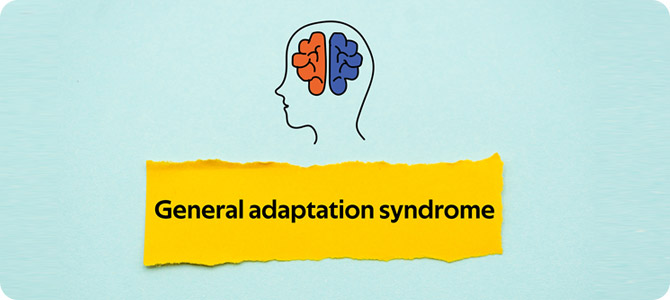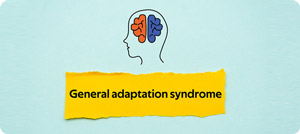General Adaptation Syndrome Treatment Specialist in Jupiter, FL
Dr. David Husted guides on General Adaptation Syndrome, or GAS, which refers to how the body responds to long-term stress. It unfolds in stages, beginning with an initial reaction to pressure, followed by a period of resistance, and eventually, if the stress isn’t resolved or managed, exhaustion. It’s a process that takes a physical toll alongside emotional distress, impacting sleep, immune response, focus, and mood regulation. When the body has been stuck in that state too long, it can become harder to bounce back without intervention. For more information, contact us today or book an appointment online. We are conveniently located at 3893 Military Trail Suite 3 Jupiter, FL 33458.


Table of Contents:
How can therapy help in treating General Adaptation Syndrome?
Are there lifestyle changes that can help manage General Adaptation Syndrome?
How can stress management techniques aid in the treatment of GAS?
How can mindfulness or meditation help with General Adaptation Syndrome?
Therapy gives structure to what might otherwise feel overwhelming or directionless. When the body and mind are both strained, as is often the case with adaptation syndrome, understanding and articulating what’s happening can be significant. A licensed provider can help make sense of what stage the individual is in and guide them toward strategies that match their experience, rather than applying a broad fix to something specific. Emotional exhaustion often creates a feedback loop with avoidance or irritability, and therapy allows that cycle to be addressed directly.
A common experience in therapy for GAS is learning how to identify what’s being internalized and what can be rebalanced or adjusted. Many people experiencing ongoing stress stop noticing the degree to which they’re suppressing reactions, pushing through discomfort, or avoiding rest. Over time, those habits wear down the nervous system. Through consistent sessions, therapy helps surface those patterns and replace them with coping methods that don’t add further stress.
The specialists at Psychiatry of the Palm Beaches often incorporate techniques like CBT to challenge overwhelming thoughts, supportive therapy to reframe daily stressors, or longer-term approaches that dig into root causes. The work is individualized, focused on reducing the intensity of the stress response, and supporting the patient’s overall recovery.
Lifestyle changes can help to manage GAS recovery and build upon treatment success. When stress becomes overwhelming, even basic systems like eating, sleeping, and physical movement can fall out of rhythm. Restoring those habits helps the body get back into a routine where it isn’t constantly in fight-or-flight mode. Even simple changes, such as going to bed and waking up at the same time each day, can reduce the wear and tear on the nervous system.
Changes in routine often have the greatest impact when they’re introduced gradually. Rather than overhauling every part of daily life, many patients do better with small shifts. This may include incorporating a short walk after meals, a break from caffeine, or dedicated time away from screens. These may seem minor on the surface, but over time, they can minimize the overstimulation that feeds into GAS. The goal of these changes is to create enough recovery time that the body doesn’t stay in a state of alarm.
The team at Psychiatry of the Palm Beaches may recommend specific lifestyle strategies based on the patient’s overall health, personal stressors, and work-life demands. That can include nutrition support, sleep hygiene recommendations, or physical activity plans. What’s most helpful is that these changes are tied directly to what the individual is experiencing, rather than imposed as generic solutions. When people feel their system starts to slow down and regulate again, the effects are often cumulative.
When General Adaptation Syndrome has progressed past the initial phase, the body often loses some of its ability to self-regulate in real time. What stress management techniques do is retrain the nervous system to respond in a way that doesn’t deepen the spiral. Techniques like breathing work, progressive muscle relaxation, or guided visualization help the body practice shifting out of survival mode. Over time, that practice builds new responses. Instead of the heart racing or the jaw tightening at the first sign of pressure, the body begins to respond more flexibly.
The patient might still feel overwhelmed, but they gain more control over how long that feeling lingers or how much it derails their day. In cases of GAS, that kind of regulation can be the difference between functioning and burnout. The more consistently these techniques are used, the more accessible they become during high-stress moments.
GAS specialists at Psychiatry of the Palm Beaches can help integrate these techniques into daily routines so they’re used when needed. That might mean walking through exercises in session, assigning practice during low-stress periods, or identifying triggers that call for a specific strategy. What makes these methods effective is the manner in which they help interrupt the automatic loop that keeps the individual stuck in a state of overactivation.
Mindfulness and meditation are two practices that ask the body and mind to be still, which can feel impossible for individuals deep in the exhaustion phase of GAS. That’s also what makes them powerful when done in a manageable way. Starting small, whether that’s a few minutes of breath awareness or listening to a guided body scan, can create space between a stressor and the response. Over time, that space grows, and the system begins to recalibrate.
Meditation can be as simple as anchoring attention to one task. What matters is repetition. As the practice continues, the body slowly exits its default state of tension and alertness. For individuals experiencing the long-term effects of GAS, that shift often presents an important step toward recovery. At Psychiatry of the Palm Beaches, mindfulness may be introduced alongside other therapies. For some patients, it offers a new way to track their internal experience. For others, it’s a way to feel grounded again after months or years of operating in survival mode.
Targeted General Adaptation Syndrome Therapy with Our Team
For those feeling constantly drained or overwhelmed, General Adaptation Syndrome may be the cause. Our team offers targeted therapy that supports emotional recovery and helps patients rebuild healthy stress-response patterns. Our guidance encourages long-term mental strength and improved daily functioning.
At Psychiatry of the Palm Beaches, we specialize in treating General Adaptation Syndrome with personalized care to help you manage stress and restore balance. Our expert team is here to support your journey to recovery and improved well-being. For more information, contact us today or book an appointment online. We are conveniently located at 3893 Military Trail Suite 3 Jupiter, FL 33458. We serve patients from Jupiter FL, North Palm Beach FL, Riviera Beach FL, West Palm Beach FL, and surrounding areas.
Check Out Our 5 Star Reviews



Additional Services You May Need
▸ Mental Wellness
▸ Relationship Coaching
▸ Depression and Mood Disorders
▸ Women’s Health
▸ Panic Disorder
▸ Medications Management
▸ Men’s Health
▸ Individual Psychotherapy
▸ Bipolar
▸ ADHD
▸ Geriatric Mental Health
▸ Couple’s Counseling
▸ Obsessive Compulsive Disorder
▸ Social Phobia Treatment
▸ Eating Disorders
▸ Post Traumatic Stress Disorder
▸ Psychotic Disorders


